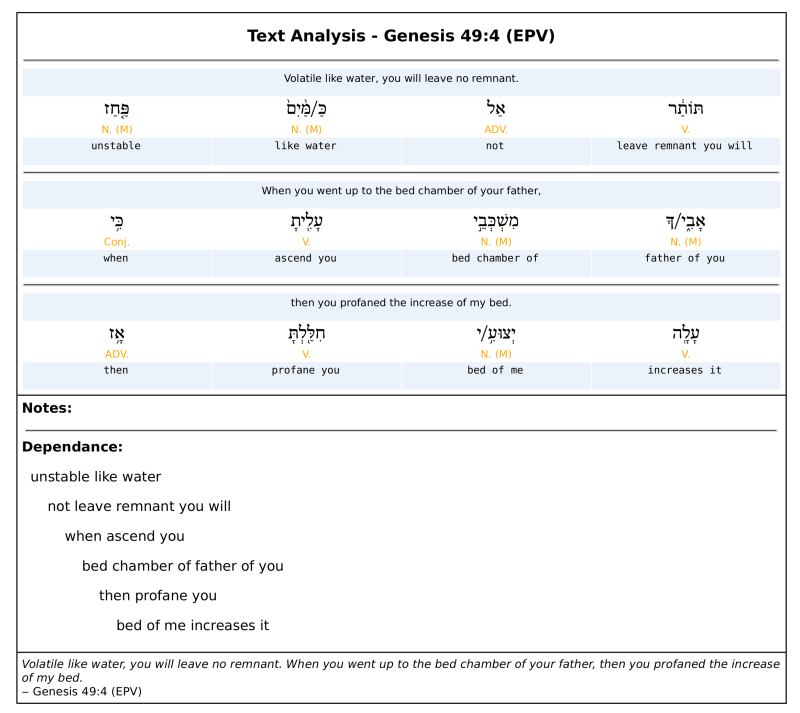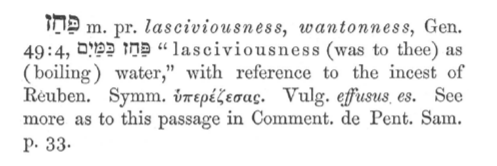Water is the first natural substance mentioned in Scripture:
The earth was without form and void, and darkness was over the face of the deep. And the Spirit of God was hovering over the face of the waters. (Genesis 1:2) [ESV throughout]
The creation of the earth begin from water:
And God said, “Let there be an expanse in the midst of the waters, and let it separate the waters from the waters.” And God made the expanse and separated the waters that were under the expanse from the waters that were above the expanse. And it was so. And God called the expanse Heaven. And there was evening and there was morning, the second day. And God said, “Let the waters under the heavens be gathered together into one place, and let the dry land appear.” And it was so. (Genesis 1:6-9)
Beginning the prophecy of Reuben, the firstborn, with water parallels creation. In other words, Jacob begins by using water with his firstborn just as God begin using water in the creation of the earth. The use of animals in the prophecies of the sons who came after Reuben also follows the sequence of creation.
Water maybe "lifeless" yet besides being essential for life, it was the physical location for the first type of animal life:
So God created the great sea creatures and every living creature that moves, with which the waters swarm... (Genesis 1:21)
Again there is a parallel with the firstborn son who is supposed to be the person who preserves and continues the family name. However, Reuben defiled his father's bed. There is a prophetic parallel in Revelation:
Then I saw a new heaven and a new earth, for the first heaven and the first earth had passed away, and the sea was no more. (Revelation 21:1)
And he said to me, “It is done! I am the Alpha and the Omega, the beginning and the end. To the thirsty I will give from the spring of the water of life without payment. (Revelation 22:6)
The "sea" named on the third day of creation is no more (it was "unstable") and is replaced by the spring of the water of life.
Also, water is used symbolically in prophecy to represent people:
therefore, behold, the LORD is bringing up against them the waters of the River, mighty and many, the king of Assyria and all his glory. And it will rise over all its channels and go over all its banks (Isaiah 8:7)
And the angel said to me, “The waters that you saw, where the prostitute is seated, are peoples and multitudes and nations and languages. (Revelation 17:15)
Finally, water may be lifeless, but it is associated with eternal life:
Then the angel showed me the river of the water of life, bright as crystal, flowing from the throne of God and of the Lamb (Revelation 22:1)
but whoever drinks of the water that I will give him will never be thirsty again. The water that I will give him will become in him a spring of water welling up to eternal life.” (John 4:14)
One could say the first prophecy which is about the unstable waters of Reuben is replaced by the living waters of eternal life offered by Jesus.

